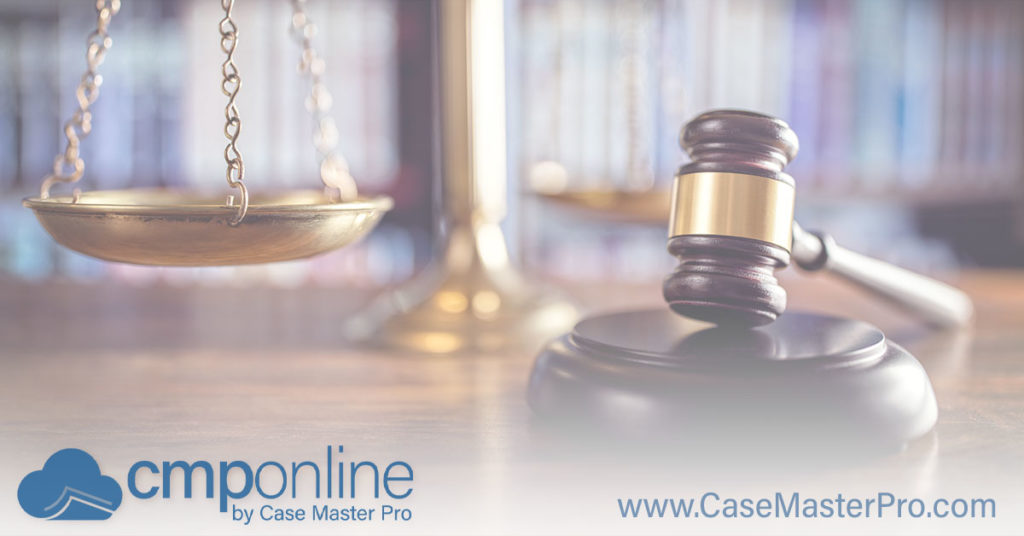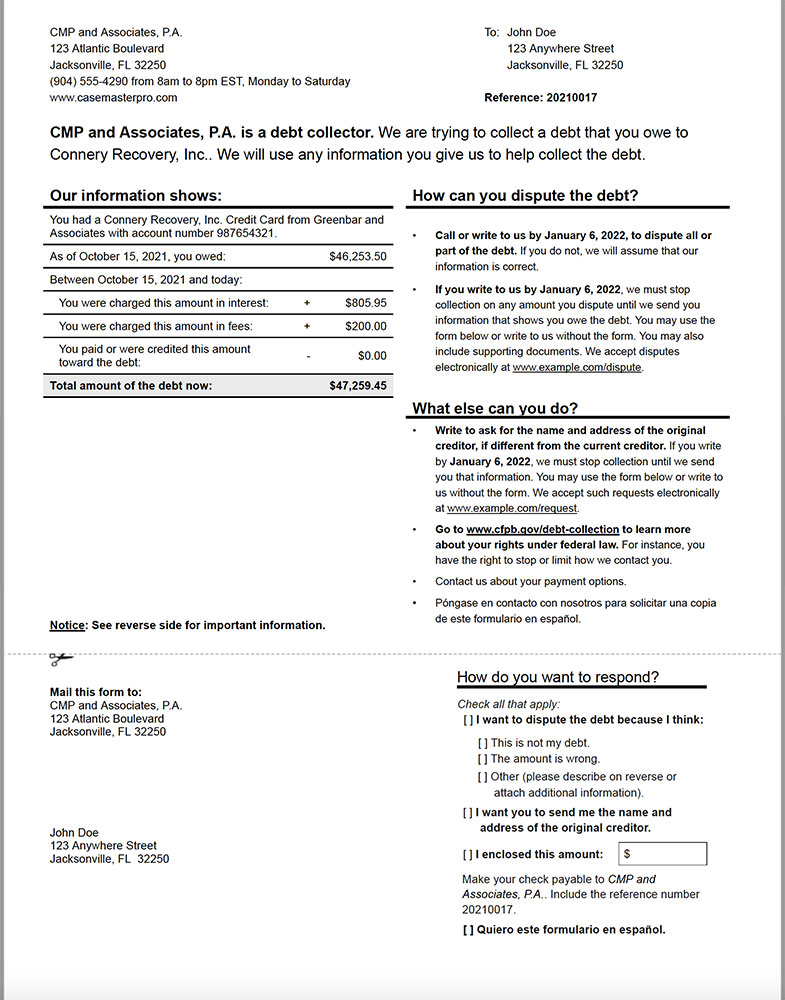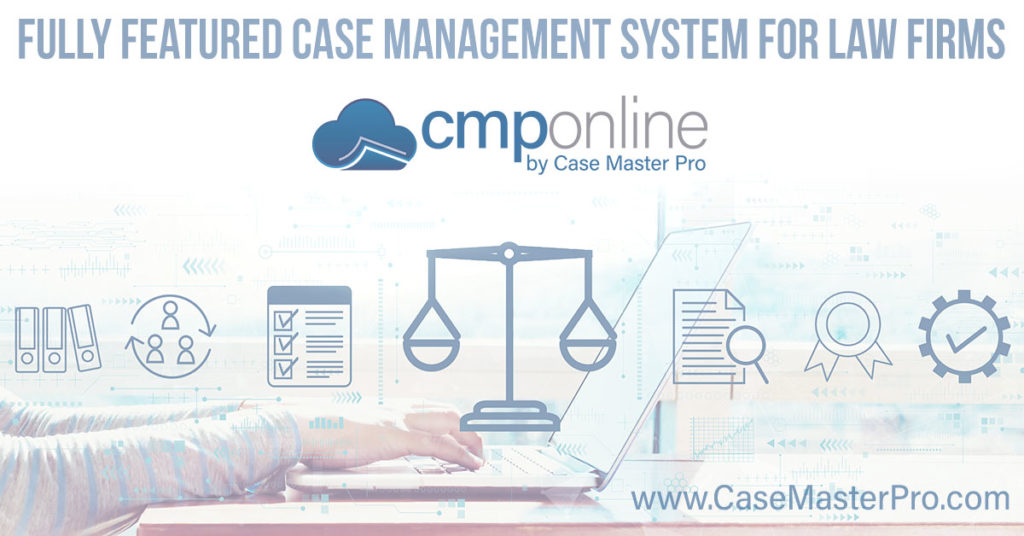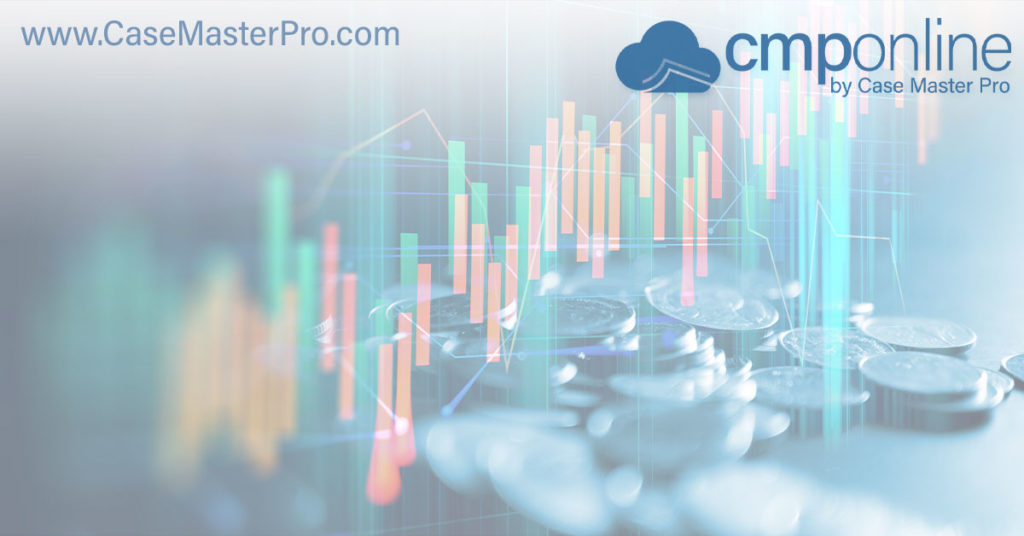
Ever feel like you’re walking a tightrope when it comes to navigating the world of Collection Industry Solutions? That every step forward comes with new challenges or regulations to tackle? You’re not alone. The collection industry is intricate, filled with complexities that can often seem daunting.
This post is your safety net – here to catch you if you stumble and help guide your way. We’ll journey together through the winding path of legal debt collections, exploring common challenges and practical solutions.
You’ll gain insights into key regulations such as Regulation F, learn proactive measures for maintaining compliance in legal collections, understand insolvency’s impact on creditors’ rights, explore technology’s role in efficient debt collection practices and more!
A wealth of knowledge awaits! So take a deep breath—we’ve got this.
Understanding the Legal Debt Collection Industry
The legal debt collection industry can seem like a complex maze, especially for those new to it. The crux of this business lies in its ethical practices and compliance with stringent regulations. While navigating through these rules might be tough, it’s critical to ensure fair dealings.
A common misconception about debt collectors is that they are merely persistent pursuers of payments overdue. But there’s more to their role than meets the eye. As part of the broader financial ecosystem, debt collectors play an essential role in maintaining economic balance by helping businesses recover unpaid debts.
Regulations Guiding Ethical Practices
In order to uphold fairness and protect consumers from unscrupulous tactics, numerous laws regulate how collections must proceed. There are strict regulations to follow, ethical practices to uphold, and intricate strategies to implement. To successfully navigate this industry, you need an understanding of both federal and state laws such as the Fair Debt Collection Practices Act (FDCPA). These laws protect consumers from unfair or abusive collection tactics. These regulations stipulate not only when but also how often a collector may contact a debtor, thus safeguarding consumer rights while balancing creditors’ needs for repayment. But for lawyers in the field, they can be a maze of guidelines that require careful navigation.
Fostering Collaboration & Learning
Moving beyond mere compliance adherence calls for continual learning and professional development within the industry. Collaborative platforms like ACA International provide invaluable resources for legal professionals in this field.
They offer opportunities to share best practices, gain insights from seasoned industry players, and even provide avenues for professional training – making them a go-to resource.
Maintaining Ethical Practices
Beyond regulations though lies ethics – it’s vital for any attorney working in collections to not only adhere strictly to all legal guidelines but also maintain fair treatment towards their clients throughout the process.
Implementing Strategies
Last but certainly not least comes strategy implementation; utilizing data analysis tools within your chosen software solution lets you identify patterns in client behavior or payment trends which could prove useful when planning future approaches.
Technology: The Game Changer
Wrapping things up, tech has truly become a game changer. It’s introducing fresh solutions like Case Master Pro that makes compliance management easier and boosts efficiency.
Key Takeaway: Legal debt collection isn’t just about chasing overdue payments – it’s a crucial part of our financial ecosystem. Navigating its intricate rules is an art that requires ongoing learning and collaboration, but technology like Case Master Pro can make this easier. And always remember: fairness in dealing with consumers isn’t optional, it’s essential.
Challenges Faced by Legal Debt Collectors

The debt collection industry, especially for legal professionals, is not a walk in the park. There are numerous challenges that can make your day seem like an uphill battle.
Navigating Regulatory Complexity
One of the biggest hurdles is understanding and navigating complex regulations. With federal laws such as Fair Debt Collection Practices Act (FDCPA), staying compliant becomes tricky business. It’s a dance between protecting consumer rights while ensuring successful recovery of owed debts.
This gets more complicated when you add state-specific rules into the mix. Laws vary across states, adding another layer to this regulatory maze. Contact your state attorney general’s office to learn more about the laws in your state.
Maintaining Ethical Standards
Beyond legal compliance, maintaining high ethical standards presents its own set of difficulties. But why? Because being overly aggressive or using shady tactics could tarnish your reputation fast. Earning trust from clients requires transparent and respectful practices at all times during collections procedures.
Finding Effective Solutions
In light of these complexities and potential pitfalls comes our next challenge – finding effective solutions that balance both legality and efficiency. Debt collection software designed specifically for lawyers has emerged as one solution that offers some relief here.
Such tools let you streamline processes while adhering strictly to regulation guidelines, sort of like having your cake and eating it too. To make the most of debt collection software, it is essential to have a comprehensive understanding of your needs and select an appropriate tool.
Ensuring Effective Communication
Finally, communication with clients presents another challenge. You need clear dialogues for smooth debt recovery operations. But sometimes emotions run high or misunderstandings occur that can derail these conversations.
This is where excellent customer service skills come into play – being empathetic yet firm in discussions can go a long way in ensuring successful collections.
Key Takeaway: Legal debt collection is a tough road filled with complex regulations, ethical dilemmas and communication challenges. But there’s light at the end of the tunnel. Debt collection software can help streamline processes while keeping you on the right side of law. Remember, maintaining trust through transparent practices and effective customer service are key to successful collections.
Navigating Debt Collection Regulations

Debt collection regulations, like Regulation F, aren’t just legal hurdles. They’re vital guides that help us keep our practices fair and ethical. Let’s explore and understand these rules to ensure our practices are equitable and responsible.
The Importance of Comprehending Regulation F
Why should we care about Regulation F? Because it lays down the do’s and don’ts for interacting with consumers during debt collection. Violations can lead to severe penalties, not to mention a tarnished reputation in the industry.
Some key provisions include limitations on communication methods, restrictions on deceptive practices, and mandates for providing certain information at specific times. Each one is designed to protect consumer rights while ensuring an even playing field for collectors.
Making Sure You’re On Board With Compliance
To ensure compliance with such regulations isn’t as daunting as it sounds, start by staying informed about changes in laws or new rulings related to collections – knowledge truly is power here.
Incorporating policies that mirror regulatory requirements can also go a long way towards safeguarding your operations from violations. Regular training sessions can make sure all staff are aware of their responsibilities under these laws too.
Finding Your Way Through The Regulatory Landscape
Navigating through this complex web of regulations may feel overwhelming at first glance but remember: you’re not alone. There are resources available specifically designed to aid lawyers and legal professionals maneuver this landscape smoothly.
A platform like Case Master Pro doesn’t just assist you with managing your cases efficiently, it also ensures that you’re keeping up with all relevant regulations. Its comprehensive suite of tools includes features to help you stay compliant, maintain proper documentation and records, and manage your cases effectively.
Don’t let the intricacies of debt collection laws intimidate you. Instead, use them as a compass to guide your path towards ethical practices and successful collections.
Key Takeaway: Don’t view debt collection regulations as mere legal hurdles. They’re your guide to ethical practices. Understand the do’s and don’ts of Regulation F to avoid penalties and protect your reputation. Keep updated on changes, train staff regularly, and use resources like Case Master Pro for smooth navigation through these laws.
Solutions for Ensuring Compliance in Legal Collections

Legal debt collectors and creditor rights attorneys face a tricky landscape when it comes to compliance. It’s not just about getting back the money owed, but also making sure every step taken is within legal bounds.
To prevent violations or allegations of unfair practices, these professionals need more than just knowledge, they need reliable systems that help them stay compliant with regulations such as Regulation F. This rule requires clear communication and transparency at all times during the collection process.
Implementing Robust Compliant Case Management Systems
A solid start towards ensuring compliance lies in implementing robust management systems. These systems should include comprehensive policies that guide actions across different scenarios. Training is equally important – every team member must understand their responsibilities under various laws.
An effective system would allow monitoring to catch any potential issues early on. Just like how we keep track of our health by regularly visiting a doctor—frequent check-ups can make sure your collection processes are healthy too.
The Importance of Transparency and Clear Communication
In this digital age where information travels fast, maintaining transparency has never been more crucial. For instance, if you’re explaining why someone owes what they do, break it down into simpler terms instead of using complicated jargon.
Clear communication helps ensure everyone involved understands exactly what’s happening – reducing chances for misunderstandings or mistakes which could lead to regulatory penalties later on.
Ethical Practices: The Backbone of Compliance
No amount of technology or training can replace ethical behavior from legal debt collectors themselves. Following ethical practices isn’t just about avoiding penalties, but also building a reputation of trust and fairness in the industry.
From treating debtors with respect to refusing deceptive tactics, sticking to ethical guidelines ensures compliance becomes a natural part of your collection process rather than an enforced rule. Think of it as eating vegetables – not always exciting, but essential for long-term health.
Key Takeaway: Dealing with legal debt collection isn’t just about reclaiming what’s owed to you, it’s also about playing by the rules. Solid systems and complete transparency are must-haves to keep things above board. Regular check-ups, like those we have for our health, can make sure your collections stay in tip-top shape. In today’s digital world, crystal clear communication is crucial to dodge any mix-ups that could end up costing you a pretty penny.
Insolvency and Creditors’ Rights

The world of insolvency is like a tangled web. It’s a convoluted, multifaceted system that necessitates careful scrutiny. But for creditor rights attorneys and legal debt collectors, it’s the bread and butter of their work.
To recover debts effectively in insolvency cases requires more than just understanding bankruptcy laws, it calls for collaboration with experienced bankruptcy attorneys as well. Staying informed about changes in these laws can mean the difference between successful recovery or hitting dead ends.
Navigating Insolvency Cases
A good starting point? Think of each case as an uncharted territory waiting to be explored – only this time, you’re armed with tools that make navigation easier. These ‘tools’ are essentially knowledge bases such as the World Bank blog on giving creditors a voice during the insolvency process. This valuable resource provides insights into global best practices for handling insolvent debtors while maintaining respect for creditors’ rights. It’s not your everyday bedtime read but trust us when we say it’s worth every minute spent pursuing its pages.
Creditors’ Rights During Insolvencies
Beyond merely pursuing debt recovery from bankrupt entities, creditor rights lawyers need to understand how they can safeguard their clients’ interests amidst all complexities associated with insolvencies.
One effective strategy involves prioritizing secured claims over unsecured ones – much like choosing your battles wisely.
This approach isn’t foolproof though. The success rate heavily depends on thorough documentation supporting secured status claims — another instance where precision plays an integral role.
Tapping Into Technology For Compliance
While understanding and navigating insolvency laws can be challenging, technology offers solutions that aid in compliance management. Platforms like Case Master Pro provide features designed to keep legal debt collectors on the right side of regulations.
This isn’t just some flashy gadget for tech enthusiasts.
Key Takeaway: Dealing with insolvency is like navigating a tricky maze. It’s not just about knowing the law, but also collaborating effectively and staying updated on legal changes. Resources like the World Bank blog can guide you through this process. Technology can be your ally too. Tools such as Case Master Pro help keep you compliant.
Technology Solutions and Innovations

In the rapidly evolving world of debt collection law, tech is revolutionizing the game. It’s like swapping out your old bicycle for a high-speed bullet train – suddenly you’re moving faster, getting more done, and keeping up with all the twists and turns of regulations. Case in point: Case Master Pro, an innovative solution designed to help lawyers streamline their debt collection operations. This advanced software acts as a reliable navigator guiding through the intricate maze of compliance management. Think about it this way – just as Google Maps guides us seamlessly through unknown terrains avoiding traffic snarls, Case Master Pro helps law firms maintain transparency and uphold ethical practices while ensuring clear communication within their complex tasks.
Automating Collection Processes
Dealing with debt collection can be a tedious task. But, technology comes to the rescue. Automation in legal debt collection processes helps attorneys cut down on time-consuming tasks and focus more on case resolution.
CMPOnline’s automation features are designed to streamline your workflow. They let you automate repetitive administrative duties like updating files, tracking due dates, or sending notifications. Less time spent dealing with tedious administrative tasks and more energy devoted to client assistance is the result of CMPOnline’s automation features.
Better Time Management
Automation lets lawyers save precious hours every day. Instead of manually sorting through cases or chasing late payments, automated systems do these jobs for them efficiently and error-free.
This is not just about saving minutes, it’s about transforming how law firms operate. It’s like having an assistant who never sleeps, constantly working behind the scenes so that attorneys can devote their energy where it really matters: collecting debts.
Maintaining Compliance
The legal industry is heavily regulated. This means even small errors could lead to big trouble such as fines or lawsuits. Automated software solutions reduce risk by maintaining strict compliance with laws at all times.
CMPOnline ensures consistent adherence to rules and regulations governing collections activities without needing constant human oversight, offering peace of mind alongside efficiency gains. Learn more here.
Simplifying Client Communication
In addition to managing data effectively, automation also simplifies communication processes between lawyers and clients in a secure manner—a critical aspect when handling sensitive financial information related to debts.
CMPOnline enables automatic generation of reminders, updates, and follow-ups to clients. It also maintains a record of all client interactions for future reference. This technology promotes openness and builds confidence between lawyers and their customers.
An online entryway offers a helpful method for customers to view their recorded data whenever they require it. Our intuitive Client Access feature ensures that your clients have 24/7 access to crucial data related to their cases such as balances owed, payment histories, as well as many other reports and customizable features.
Let’s face it, in the tricky landscape of legal debt collection, automation isn’t just a nice-to-have, it’s essential. It streamlines tasks, guarantees compliance, and boosts client communication—making your law practice more efficient.
Key Takeaway: Embrace automation in your legal debt collection process to streamline workflows and manage time better. Let technology handle repetitive tasks, ensuring error-free operations and compliance with regulations. Moreover, enhance client communication by automating reminders, updates, and follow-ups while maintaining transparency for trust-building. Automation isn’t just nice-to-have, it’s essential for a more efficient law practice.
Collaboration, Partnerships, and Professional Development

In the dynamic world of legal debt collection, fostering collaboration and partnerships can be a game-changer. By sharing knowledge and best practices with peers in the industry, firms not only strengthen their compliance but also enhance their service quality.
The exchange of ideas often leads to innovative solutions for navigating complex regulations. This synergy among professionals creates an environment that’s conducive to learning and growth.
Value of Collaboration & Partnerships
Working together has its perks. When law firms partner up with other agencies or technology providers like Case Master Pro, they access more resources which can help them manage cases better while ensuring full regulatory compliance. They learn from each other’s experiences – both successes and challenges – allowing them to build more effective strategies.
Ongoing Professional Development: A Must-Have
To stay at the top of your game in this field, you need continuous professional development. Regulations change regularly; so does technology. Regular training ensures creditor rights attorneys are always ready to handle these changes confidently.
Seminars, webinars, or online courses allow professionals to refresh their skills set frequently while staying updated about new developments in laws relating to insolvency processes (source here). Not just that. Such platforms provide excellent networking opportunities too.
Industry Associations: Networking and Learning Hubs
Associations like ACA International and The National Creditors Bar Association offer fantastic opportunities for networking with industry peers. These associations often organize events where you can connect with fellow professionals while gaining insights into new trends in the debt collection industry.
Beyond just networking, these organizations also provide valuable resources such as publications, research reports, and training programs to aid your professional growth. So make sure you’re part of these communities to stay ahead in the game.
Key Takeaway: Unlocking the power of collaboration and partnerships in the legal debt collection field is a game-changer. Sharing insights, tackling regulations like Regulation F together, and learning from each other’s experiences can help enhance compliance while improving service quality.
FAQs in Relation to Collection Industry Solutions
What Challenges Do Legal Debt Collectors Face?
Legal debt collectors grapple with several issues. These include staying compliant with changing laws and regulations like the Fair Debt Collection Practices Act (FDCPA) or Regulation F. They also have to deal effectively with defaulters who may be unresponsive or hostile while maintaining professional conduct throughout the process. Furthermore, they need efficient systems for tracking debts, payments, case details etc., which can be overwhelming without appropriate software solutions.
What Is Regulation F?
Regulation F, issued by The Consumer Financial Protection Bureau (CFPB), governs how third-party debt collectors communicate with consumers regarding their debts. It aims at protecting consumers from harassment or deceptive practices while providing clear guidelines for fair debt collection processes.
Collaborative Partnerships In The Collection Industry
In an effort to improve efficiency and compliance within the collections industry, many organizations are forming collaborative partnerships. This includes alliances between law firms specializing in collections and technology companies offering advanced software solutions tailored specifically for this sector such as Case Master Pro.
What is a Good Technology Solution For Debt Collectors?
A good technology solution should offer comprehensive features that streamline every aspect of legal debt collection – from initial contact through final resolution. CMPOnline is an excellent example of such a solution. It offers advanced features like case management, automated workflows, and compliance tracking tools to help attorneys efficiently manage their collection processes while ensuring regulatory compliance.
Conclusion
Getting through the maze of legal debt collections isn’t a cakewalk. But you’re now armed with insights and practical Collection Industry Solutions.
You’ve learned about key regulations like Regulation F, their impact on collection practices, and how to navigate them effectively.
We delved into proactive compliance measures in legal collections like policies, training, and monitoring. You know that transparency is paramount.
We highlighted insolvency’s role in creditors’ rights. Knowledge of insolvency laws will serve you well as a collection attorney.
You’ve seen how technology can streamline your operations while maintaining compliance. The future holds promising innovations for our industry!
The value of collaboration cannot be overstated. Through partnerships and ongoing professional development lies success!
Ready to take your practice to the next level of Debt Recovery? Case Master Pro offers SaaS-based Debt Collection Software tailored specifically for lawyers like you. With our tools at your disposal, navigating through different Collection Regulations becomes easier than ever before. Visit Case Master Pro and request a FREE DEMO today to start transforming how you handle debt collection cases!
